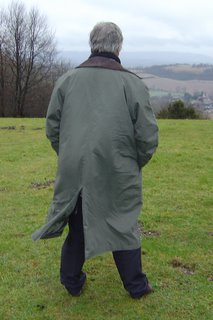I’ve been meaning to preach the S & M sermon for quite a while. It’s a personal thing, you see, something that I’m totally serious about, and so I need to express myself very carefully.
As I get older I wonder from time to time (as do a lot of people I should think), “If I could start my life afresh what would I do differently?”
Well the answer is simple. I would have taken Sport (the “S” in my S & M) more seriously in my childhood. Particularly (and this applies to me personally), I should have concentrated my humble efforts on one team game – cricket, and one individual sport – golf. And, later, I should have been more insistent that my children chose sensible sports and I should have made more effort to ensure that they participated in them at every opportunity and hopefully excelled in them. Sport of all kinds educates the mind as well as the body, and helps you understand how to achieve goals both as an individual and as part of a group.
As for the “M” in my S & M, that stands for Music. How I wish that I had been actively encouraged to learn the piano when a child. How envious I am of those who can read music and make musical instruments come alive. Sure, I dabbled with a double bass as a teenager, but I should have been more serious about it. And, again, I should have been more insistent that my children chose sensible instruments and persisted at least for as long as it takes to be able to read music and to get genuine pleasure from playing. As in sport, music demands that you participate both as an individual and as a group.
The theme of the “S & M Sermon” is that, in the world today, proponents of sport and music are doing more for world unity than any amount of politicians or preachers, soldiers or diplomats, and accordingly should be encouraged in all people at all times.
When sportsmen and musicians decide to help stricken areas of the world the effect is immediate and, often, inspiring. Take this year’s Tsunami fund-raising events in many sports, (rugby and cricket stand out for me). Vast amounts of money were raised very quickly and put to immediate effect, and much of the £300 million pounds donated in the UK came out of S & M events.
Sir Bob Geldof’s Live 8 appeal to “make poverty history” stands out in 2005 as an incredible illustration of how pop music can work for others less fortunate. Another ambitious unifier is the World Orchestra for Peace, founded by Sir Georg Solti and now under the baton of Valery Gergiev, which brings together some 100 classical musicians drawn from around 80 different orchestras in 40 countries from Latvia to Cuba, via Japan, Korea and Kazakhstan. This deft amalgam of brilliant (unpaid) musicians is playing this year in London, Berlin and Beijing (marking the anniversary of the end of World War II) and may well be selected for ceremonies to mark the re-opening of Ground Zero in two years time. I hope so.
I’m not sure if the success of the Iraqi version of TV’s Pop Idol, has much to do with all this, but if a combination of football and Pop Idol can bring any sort of harmony and balance to that wretched, stricken land, then I’m all for it.
So, to conclude, I’m quite happy that sportsmen and musicians are amongst the most highly paid people on earth. I’m delighted that the Olympic Games will be held in London in 2012, and I’m pleased that Wembley Stadium is being rebuilt. And, I wonder, whose personal achievements of the leaders of our day will survive longest? Will it be Bush, Blair, Pope John Paul II, or Her Majesty the Queen, perhaps? I rather hope that Sir Bob Geldof outshines them all in history, because his contribution has been the most effective.
That’s enough of the sermon!


